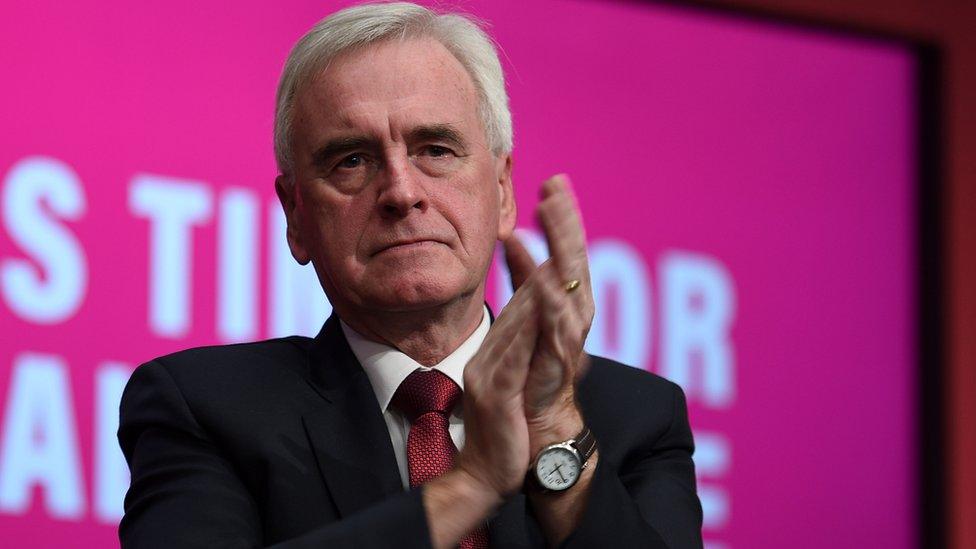Labour plans will 'slow' climate change fight, says energy firm
- Published
'Private investment is bringing down the cost of renewable energy'
Nationalising UK energy companies will delay the UK's move towards a zero carbon future, according to the chief executive of Scottish Power, Keith Anderson.
He said that investment by the private sector had seen the cost of renewable energy plummet over the last decade and that debates about nationalisation would only serve as a distraction from averting a climate emergency.
"We need to focus on hitting zero carbon by 2050. Anything else is a distraction.
"Having big arguments about who owns what is the worst thing we could do right now. It would slow everything down when what we need to do is speed up."
A Labour spokesman said Mr Anderson's comments were "hardly surprising" as they represented "vested interests".
"Labour has set out our plans to dramatically expand the rollout of renewable generation - so that we can hit net zero by the 2030s - not 2050," he said.
"While generous public subsidies have led to some private sector investment in renewable generation, private ownership of the UK's grid has been a disaster, with shareholder dividends prioritised over investment."
Mr Anderson told the BBC: "We estimate we need to install 4,000 electric car charging points a day between now and 31 December 2050, and if we delay that for a year arguing about ownership that is 1.5 million charging points that won't get installed in time."
Labour says it would increase charging points at a faster rate than the private sector has managed. But Mr Anderson said that competition and innovation had revolutionised his company and the industry.
"If you look back 20 years we were predominantly a coal burning generator. Now, we have shut down all our coal mines, got rid of gas and we are now a 100% renewable energy company. That's what we want us and other companies to deliver."

Shadow chancellor John McDonnell has described Labour's plans as radical
Labour plans to nationalise the big six energy providers and divide their assets, workforce and customers into 14 state-owned regional agencies.
It's not just energy. A Labour government would also take water, the Royal Mail and BT's broadband business into public ownership.
So how much would this cost?
That's a tricky question to answer. Labour say parliament would decide how much to pay the current owners - which of course includes many worker's pension funds - but the independent Institute for Fiscal Studies estimates it would add at least £200bn to government debt.
However, the government would collect the associated revenue - apart from broadband which it eventually wants to give away for free.
Radical overhaul
Arguments about who is better at delivering key public services and utilities are not new.
But the Labour Party manifesto proposes one of the most radical overhauls of how companies are owned and run in decades.
The private sector will tell you that the prospect of nationalisation is deterring private investment at a crucial time - while Labour would say only the state has the power to borrow and invest at the scale and pace that's needed.
In Scotland, as in most of Europe, the water industry is already nationalised and the SNP wants to extend public ownership of rail, buses and ferries.
Prof Andrew Cumbers of Glasgow University says that many breakthroughs in innovation and technology - particularly in renewable energy - have been achieved thanks to state subsidies.
"It sounds radical but it's only what happens in many other countries. The government can borrow much more cheaply than companies. If you leave it all to the private sector, research and development inevitably gets cut to divert profits into shareholder dividends."
Smaller companies - such as Bulb, Ovo and Octopus in energy, and Virgin Media and Talk Talk in broadband - would not face nationalisation. That would leave them competing with the state.
Tough if you are giving services like broadband away for free or others at less than market prices.
Even Labour describe their own policies as radical. On that at least business would agree.
- Published24 November 2019

- Published21 November 2019
